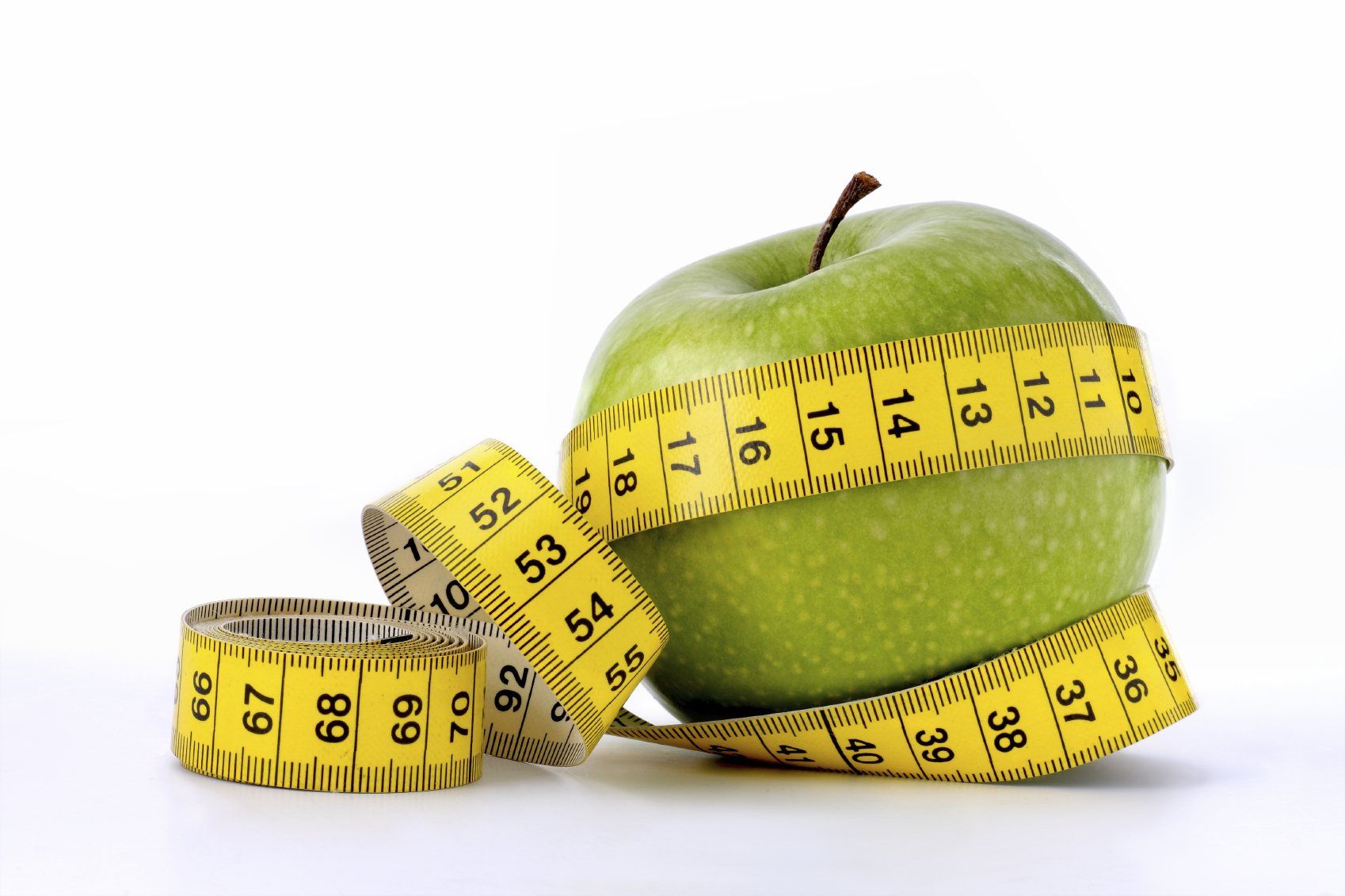Blog Layout
Rewrite your rules for when to stop eating
Caroline Tyrwhitt • 3 November 2020
When you’re eating do you keep going until your plate is empty, like a good little girl, like your mother told you?
You notice you're actually getting full, you can feel that slight change in your belly, but you ignore it because you haven’t finished what’s on your plate. Even though you're enjoying it less, you keep going until it’s all gone, until the plate is almost clean. And then you feel too full. Uncomfortable. You wish you hadn't eaten so much.
Worse, you put too much on your plate because you cooked a little too much and you didn’t want to waste it or put just a small amount in the fridge for later. You've planned to overeat.
Worse still, you’ve grown accustomed to eating more because you bought those gorgeous new plates, that just happened to be bigger than your old plates and you didn’t realise how that would affect your eating habits when you made that decision. You've taught yourself to eat a bigger portion.
And with just small overeating habits you will gain a few pounds each year, which add up over a decade to a dress size or two.
And you will keep repeating your pattern until YOU CHANGE that pattern.
One of the secrets to eating less is listening to your body and not your mind when you’re eating.
The first action you can take to change that is to take the time to observe yourself for a week - without judgement and without trying to change. Notice when you feel full and notice your inner chatter in that moment. When you have observed your strategy for deciding when to stop eating, you can start to understand you and can begin to create a new strategy.
You can start to rewrite your rules for when to stop eating.
The new rules we create will be different for each of us depending on what our inner chatter is.
Some common changes that are helpful for many of us are:
1. Rewrite that rule that you have to eat everything up that is on your plate. It is an old rule that is out of date and not serving you well.
- You could decide it is okay to waste that food, waste the food that is too much, especially if that belief aligns with the food you throw away that you don’t get around to cooking each week! 😕
- Or you could decide to put all the ‘too much’ food into containers and put it in the fridge for ‘later’.
- Or you could decide to cook less, just enough, rather than adding a bit more ‘just in case’.
- Or you could decide to cook more and purposefully make enough for two meals.
2. Eat more slowly so that the brain and belly have longer to communicate. It takes 20 minutes for the brain to get the signal from your belly that it has had enough. Don’t wait to be full, stop at comfortable and satiated.
3. Focus on making the food look pretty on the plate which means you’ll put less on there.
4. Reframe the thought that is triggered as you start to feel full. For example, if you’re focussing on ‘appreciating’ someone’s efforts at cooking by eating it all up, focus instead on vocalising that appreciation and their generous portions and share how you are looking forward to eating the rest of the food tomorrow. If you're focussing on getting value for money because you've paid to eat out, focus instead on appreciating not having to spend the time preparing or clearing and being waited on, and ask for a doggy bag to enjoy it later.
5. Ask your future self what they would like you to do in that moment. Your future self is much better at looking after you and making great decisions for you than is your present or past self! Your future self knows very well what it feels like to change your eating rules.
If you would like support to create more helpful eating habits that can help you lose weight without depriving yourself and maintain your weight loss, why not message me. We can arrange to chat and explore how I can help.
In the meantime, why not read a bit more about my powerful Mindset Diet programme
and how it can help you change your relationship with food for good.

by Caroline Tyrwhitt
•
8 September 2024
Are you quick to brush off your accomplishments, even when you’ve made meaningful changes to your eating habits? You’re not alone. Many women hesitate to fully embrace their wins, although may be quick to absorb any thing they see as a failure.
But what if taking pride in your progress is exactly what you need to stay motivated? Because owning your wins—no matter how small—and focussing on your progress builds confidence and motivation.

by Caroline Tyrwhitt
•
24 July 2024
Cravings can be powerful disruptors in your weight-loss journey. They can even derail the most well-planned diet, as they can strike unexpectedly and get you in a battle with your willpower. Understanding how cravings work and learning to manage them is crucial if you want to control your eating and achieve your health goals.

by Caroline Tyrwhitt
•
21 January 2024
Did you know you have over 6,200 thoughts in a day? And that you make over 200 decisions about food a day? Most of which are unconscious. And that when you deprive yourself of food by going on diet you focus your mind on food even more, even causing yourself to fantasise and dream about food?

by Caroline Tyrwhitt
•
13 September 2023
For five years I’ve been sharing my journey and the tools and techniques that have helped me with others. I thought that now would be a great time to reflect on my journey to lose weight and keep it off without dieting. I made my change with ease, but that doesn’t mean it was simple. When my actions were in alignment with my plan, I felt in flow and empowered. If life or decisions felt difficult, I would notice I was not following my mindset plan. I have learned lots about myself along my chosen path, which is very exciting. It's a bit like Russian dolls, you sort one layer and then you find another layer to be sorted underneath, another facet of my habits or thinking to consider. And the secret is to find the core of who you are at the centre. Below are my key takeaways, the key changes that were perfect for me. Some will resonate with everyone, some are more specific to me. 1. Working out what balance of habits and foods will keep my body slim, my brain functioning at its best and me feeling calm and full of energy - for the long term. This is an ongoing experiment for what my balance looks like because I want to be able to go with the flow of life rather than follow a strict regime. I believe that what we do most of the time matters more than what we do once in a while. Although some of the NLP tools I used on my journey flipped a switch and I’ve never thought about food, dieting or life in the same way again, I have also discovered that some aspects of change haven't been straightforward. I firmly believe success is not a straight line, and success is personal to each one of us. I also know I learn from barriers I come up against rather than give up. I have clarity on what I want to do and who I want to be and from there I’ve have been testing how often I can afford to socialise and celebrate with friends and family or eat out - without worrying about what I’m eating - before it impacts on my long-term well-being. I have also learned to be more playful so that I break my old habit of focussing just on my career rather than the whole me. 2. Committing to doing the grocery shopping and the cooking. As a woman who claimed she couldn’t cook so that she wouldn’t be stereotyped, this was a big shift. I decided that it was important if I wanted to control what food was in the house and what I ate - very few refined carbs, very few sugars and as much fresh produce as possible. And as I researched foods that were more nutritious options, I could quickly put them on my online order for the week and save a recipe to my computer. I even started to grow more produce in the garden. This worked really well (I even started to enjoy cooking) when I was working from home full time. When I changed my work pattern back to an old environment (back to school!) I let my commitment to cooking slip. I noticed I gradually put on weight. So I had to come up with another way around the cooking and that was cooking enough for two meals at a time. 3. Creating new morning and evening routines to ensure I had enough sleep and moved regularly. This may sound small to some of you, but I had to change my work habits radically in order to achieve this: I had happily worked late into the night ‘just to finish these last bits’ for years and I always prioritised my to-do list over sleep. I had learned to plough through when my energy levels dropped and I worked to relieve worries or other uncomfortable emotions, I would ignore signs that my body needed sleep, water and sustenance. I even ignored signs of burnout. I think I would describe myself as a workaholic. The first impact of getting enough sleep was to help me reduce my stress levels. Double bonus as I could then stop the vicious cycle causing a build up of cortisol that causes visceral fat and that tyre around my middle. When rested, I could also learn to change my stress strategy and find more balance in my day and my thinking. I have become much more self-compassionate and more mindful. Sleep has indirectly helped me let go of perfectionism and change my time poor narrative: done is good enough and there is always time have become my mantras. 4. When who you live with is on board with your new way of eating and being is easier. When others in your household also want to make a shift to a healthier way of being, to manage their energy and maximise their mind and body function, it is so much easier as you’re sharing the same values and the same goal. It’s also great to share ideas, motivate and encourage each other and keep each other to account. This is especially true if like me you have people pleasing tendencies, or a tendency to prioritise the needs of others before your own. Also when I'm tired I'm more likely to give in to the easier option - of what others want, or going out for food. It was so much easier when I didn't have to work round other people's desires, manage their resistance or remind myself to reinforce my boundaries, my rules. 5. When one thing changes it impacts elsewhere - this works in both helpful and unhelpful ways. On the upside, me choosing to make small changes to improve my wellbeing boosted my confidence. One inner change had a great influence on other habits. For example, when I joined a pilates class it made me feel stronger and helped me ‘think slim’. Gradually learning which foods benefited my mind and body made me feel empowered and positive that I was building a great life, that I was in charge not food. Whereas ‘dieting’ had made me feel deprived and I focussed on struggling to ‘lose weight’ and wondering when it would be over. On the downside, a change in external circumstances upset my routine several times and I struggled to rebalance it. It was a test of resilience and flexibility. First, my pilates class was cancelled and the alternatives weren’t at a convenient time so I had to create a new morning routine where I fit my favourite exercises in while I waited for my tea to brew in the morning. More significantly, but I didn't realise the impact for quite a while, going back to teaching a few days a week introduced stress back in my life in the form of microstressors. Microstressors are the small stresses that we experience every day and write off as something we can deal with. I believe the conflict that comes as part of the experience of being a supply teacher is the cause of the build up of abdominal fat over the last couple of years. I couldn’t place what was causing it for the longest time as I was sleeping okay and didn’t feel ‘stressed’ like I had as a senior leader in school. If you would like a coach to help you find balance in your life with food, so that you can stop going on a diet and stop yo-yoing, then message me and we can explore how you would like to work with me. If you would like to try out what it’s like to work with me first, register for my next 5-day Mindset Reset here . Or if you would like more tips that you can start to address in your daily life download my free tip sheet to overcome self-sabotage and escape the trap of yo-yo dieting here .

by Caroline Tyrwhitt
•
11 August 2021
I was amazed at just how strong that ‘go on a diet’ programming is when that thought popped into my head after my recent holiday here in the UK rather than abroad in the sunshine by the sea. I am a firm believer in the mantra ‘what you do every day matters more than what you do once in a while’ and that the best response to a blow-out is to just get back to your usual routine: that lifestyle that gives you the body you want. I haven’t dieted for a few years now, so what is it that triggered that old thought? I am sure that it was the extreme sense of feeling unwell, unbalanced and bloated as a result of eating refined carbs - particularly bread - every day and eating dairy, especially enjoying locally made ice creams. I felt a great desire to cleanse my body and lose those pounds that were making my clothes feel tight. So how do you detox your body naturally? Our body is very clever and designed to eliminate toxins; it doesn’t require any 'special' diets or expensive supplements to cleanse it. We can enhance our body’s natural detoxification system by following the principles below. For me, that is going back to that awesome routine I've created that keeps me feeling energised and well and maintains my weight loss. Reduce your alcohol consumption . I had been enjoying beer or wine every day on holiday, and not just one glass. Normally, I only drink wine at the weekends and as a rule only have one or two glasses so going back to that routine will immediately make me feel better. 2. Drink more water . Water regulates your body temperature, lubricates joints, aids digestion and nutrient absorption, and detoxifies your body by removing waste products. I struggle to keep a good water habit and so I had easily fallen into having orange juice with breakfast and coffee during the day, especially cappuccino which I rarely drink. I’m now back to alarms to remind me to drink water first thing, if I feel hungry and before I eat as it also helps reduce my appetite. 3. Reduce your intake of processed foods . Eating out at all, let alone eating junk foods, means eating processed foods that contain sugar, salt and unhealthy fats. These foods lower our energy levels and are considered to be the cause of obesity and harm your liver and kidneys. While I had enjoyed a break from cooking, my feeling of wellbeing was deteriorating - despite being on holiday. In fact, I was longing for some home-cooked food. 4. Eat more foods full of antioxidants . Antioxidants help your body fight oxidative stress which is linked to chronic conditions. Examples of antioxidants include vitamin A, vitamin C, vitamin E, selenium, lycopene, lutein, and zeaxanthin. Prioritise the vegetables on your plate, eat berries or grapefruit for breakfast, snack on fruit, nuts or cacao, and drink green tea and coffee. My first meal back was stuffed marrow that I harvested from the garden and I have a fridge full of chard and beans from my parents. I’ve bought my usual go-to foods of broccoli, spinach and avocado as they are high in nutrients and antioxidants and have decided to add beets to the shopping list this month as they are also high in antioxidants - I love them roasted or in falafel. 5. Eat more foods high in prebiotics . Good gut health keeps our body’s detox system working well, boosts our immune system and keeps our serotonin levels high which makes us feel so much better. Tomatoes, onions and garlic are my favourite prebiotic and feature in most meals. Sadly, my tomato plants died while we were away, but my mum has given me plenty from her garden. I’ve bought asparagus as it’s good for your gut health, is a diuretic and it’s full of antioxidants. The bananas are in the fruit bowl and I’ve already had a muesli for breakfast made with oats. In addition I’m going to try cooking artichokes as they are not only good for your gut health but are also high in antioxidants. 6. Sleep 7-9 hours a day . Getting enough sleep is paramount to supporting your body to maintain its immune system and remove toxins from your body. This was one of the aspects of my routine that I maintained well while on holiday and now I need to ensure I continue to get those 8 hours of rest that is perfect for me so that I feel energised with my brain and body working optimally the next day. 7. Get moving . Movement is great for reducing inflammation and supporting physical and mental wellbeing. While on holiday, I had averaged about 10,000 steps per day which made me very happy and the trick for me is to keep movement in my routine on my return. There’s plenty of gardening to be done and when the rain stops I look forward to walking through the local fields. What will you do now to support your body to maintain its optimum detoxification systems? If you would like support with overcoming your habits that are preventing you from being your best you and with creating that lifestyle that will give you the body your desire, then give me a call and we can discuss how I can help you level up your life.
Braintree Road, Wethersfield, Essex, CM7 4BX, UNITED KINGDOM
|
+44 20 3389 511





